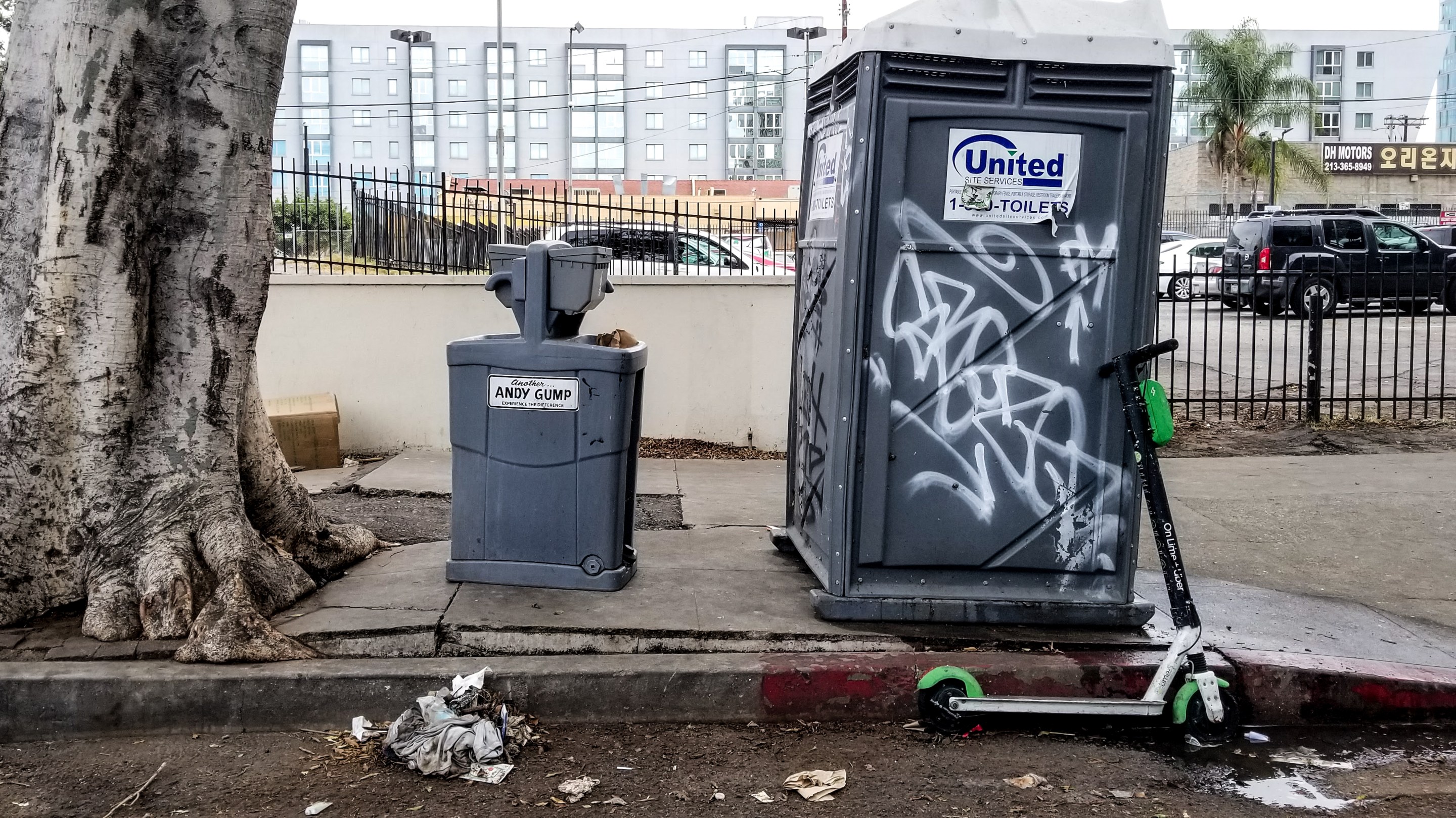City officials approved more than $1.8 million in funding to keep dozens of portable sinks and toilets that were originally rolled out to encampments during the early pandemic staying on city sidewalks.
This comes after an L.A. TACO report from April revealed that funding for the units was drying up.
Clara Karger, spokesperson for Mayor Bass told L.A. Public Press that:
“There is funding allocated for continued deployment of the portable restrooms and handwashing stations." Karger added that "The Mayor’s Office is working with departments to help ensure that the facilities continue to be deployed and maintained.”
The funding for the toilets and sinks comes from the Homeless Housing, Assistance, and Prevention (HHAP) program, a state program giving local jurisdictions the resources to address "immediate homelessness challenges."
In total, the city of Los Angeles was awarded more than 143 million HHAP dollars.
In June, the City Administrative Officer (CAO) recommended that the city spend that money on "ongoing liabilities first and foremost" which include costs for operating temporary city shelters as well as "critical homeless outreach, hygiene, and support services."
The CAO advised the city to allocate more than $1.8 million to fund the portable hygiene stations for a full year. In early June, the city council and Mayor Bass approved the proposal.
As of July 1, there are 69 toilets and sinks on city sidewalks at 35 different locations, according to the city department that oversees the contract for the units. It's unclear where exactly those locations are though.
The units were first rolled out in the hundreds to dozens of encampments during the first months of the COVID-19 pandemic, long before vaccines to treat the coronavirus were conceived and when hand-washing was one of only a few ways to protect yourself from catching the deadly virus.
At first, there were issues.
A comprehensive map outlining where the units were located didn't exist. And the city failed to assess units to ensure vendors were doing their jobs regularly. Vendors, meanwhile, sometimes failed to service the units despite collecting hundreds of thousands of dollars in payments.
A years-long L.A. TACO investigation found that units went days, weeks, and in some cases, more than a month, without being serviced. The reporting eventually pushed the city to invest more than a million dollars to keep some of the units online, with additional safeguards to ensure the units are better maintained.
Earlier this year, that funding all but ran out, resulting in calls from activists and unhoused residents for the city to invest more in the program.
When maintained, unhoused residents and outreach volunteers say that having access to bathrooms greatly improves the quality of life for unhoused people, in addition to helping ease tensions between business owners and the houseless. When there are no bathrooms, people are more likely to use the sidewalk as a toilet or rely on businesses for access to bathrooms.
Not having easy access to restrooms can lead to health complications (such as urinary tract infections) or exacerbate existing health conditions.
"One of the worst sensory feelings is dirt on your hands," an unhoused person living on the westside told L.A. TACO in March after learning that funding for hygiene stations was approaching zero. "I am having stomach problems and I had to hold in diahrea (sic) for more than 6 hrs today. Public toilets would be amazing."







